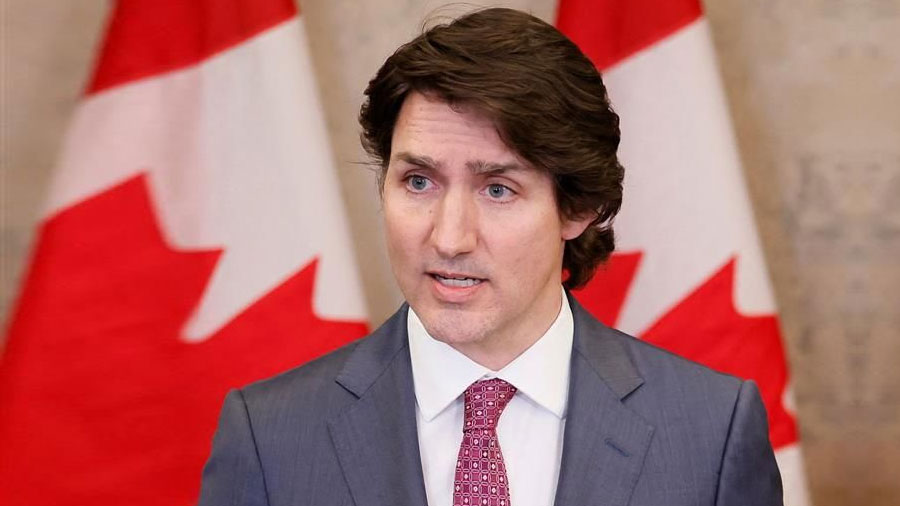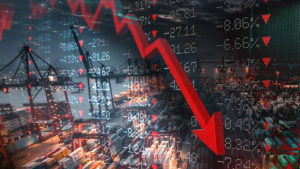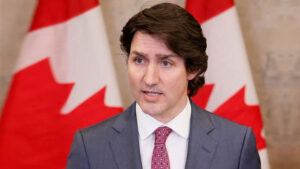

Haitian Crisis: Justin Trudeau is diplomatically correct, but the Best Haitian solution will be unpopular
Canadian Prime Minister Justin Trudeau’s statement on Haiti has shown a more mature understanding of the Haitian crisis since Canada took the leadership of the Core group, a diplomatic structure composed of the US, Canada, France, Brazil, Spain, Germany, EU, UN, OAS representatives involved in Haitian political affairs. PM Trudeau, who has openly tackled influential Haitian elites members for their contribution to the Haitian chaos, demonstrated strong support for Canadian sanctions imposed on controversial elite figures. Trudeau’s declarations become diplomatically more remarkable and politically correct as he acknowledges that the best solution should come from the Haitian People.
However, it would be ironically naive for Haitian people or any impartial observer to expect the best solution to emerge from a corrupt and immoral generation of elites who have failed Haiti with their unethical behaviors and criminal actions. Current proposals on the table seem to be a Machiavellian and manipulative game aiming to recycle the same group of profiteers, professional politicians, and work-for-hire puppeteering by the sanctioned elites to continue the evil agenda of protecting the masters of the system and perpetuate the status quo. As they say, you can’t teach an old dog new tricks.
Just this week, Haitian media outlet, radio Tele Metronome reported a shocking story about Haitian magistrates’ institution exposing Haitian biggest political scandal since 1986. This report confirms that the island is not only a failed State but also a stillborn democracy where an oligarchic system has been ingeniously put in place since the fall of Duvalier’s regime in February 1986 to protect the reign of impunity. Haiti’s Political and business elites have tacitly and maliciously implemented a corrupt judiciary system guaranteeing themselves impunity. Their control over the judiciary has transformed this branch of government into an instrument of derision and profanation against law-and-order principles placing criminals above the law. And for 37 years of democracy, no Haitian leader, president, or Prime Minister has even attempted to reform the Justice system.
Furthermore, according to this shocking report, senior judges running courts do not have proper education, moral authority, or certification from the highest Judicial Authority’s body (CSPJ) to carry out their duties ethically or competently. For the first time in history, CSPJ has rebuked 30 judges for “lack of moral integrity, abuse of authority, drunkenness, facilitating the release of notorious criminals, and insufficient academic qualifications. This scandal illustrates how profoundly the political elite has domesticated the Judiciary branch, which should have been an independent power operating at the highest ethical standard. Nonetheless, incompetent and corrupt judges have integrated the system without going through a proper vetting process. For decades, the highest Justice body in Haiti has been a breeding ground for corruption. White-collar criminals, drug dealers, corrupt politicians, and oligarchs have imposed their norms through their recommended and appointed judges without facing anyone dare to raise dissent.
Prime Minister Trudeau’s leadership is undoubtedly gaining maturity. A more attentive and pragmatic approach may arise through his deep understanding of the Haitian crisis. Also, recent declarations of Ambassador Bob Rae, Canadian Representative at the United Nations, suggest that Canada will not repeat past mistakes and shall be considered a turning point in Canadian policy toward Haiti that has long been an extension of the American imperialist vis-à-vis Haiti. Such an approach that includes privileged relations with American diplomats has empowered the Haitian elites enabling them to act with complete impunity. This complicit behavior provoked anger and frustration among the civilian population, who, during recent protests, openly called for Russia’s intervention and Putin’s help in Haiti while rejecting American assistance in solving the crisis.
Canadian efforts to help Haiti by sanctioning elites, supporting Haitian National Police, and providing humanitarian aid on the ground, are considerably welcomed by public opinion. However, it is questionable whether the sanctions would be effective when these elites have their clout over the governmental apparatus, the economy, and the financial system. Can a demoralized Haitian police under the authority of a domesticated Justice resolve this security crisis without considering a special military operation and Interpol FBI roles? Could humanitarian aid put Haiti on the road to development and industrialization to stop this mass migration toward US-Mexican borders? Can Canada help Haitians address Haiti’s unending crisis resulting from a historic malaise of generational injustice and chronic inequality between the masses and the elites?
Haitian people still feel betrayed by an illegitimate government unable to respond to security and economic crises worsened since President Jovenel Moise’s assassination in July 2021. Living in the country has become unbearable due to a sharp increase in kidnappings and violent crimes, an acceleration of inflation and food insecurity, and an increased migration activity. At this point, a comprehensive and detailed agenda for this horrific situation that has provoked this unprecedented humanitarian crisis should be the top priority for any national coalition or political accord leading to credible elections. However, traditional actors’ malicious motivations and sectoral interests are indeed a “deja vu panorama,” reminding us of the catastrophic transitional period between 2004 and 2016 that set the stage for today’s crisis.
In perspective, Prime Minister Trudeau should be aware that a controversial government’s consensus proposal and any illusionist accord from representatives of the current elites cannot resolve the Haitian crisis. Democracy in Haiti is at a dead point. Since the term of the last one-third of the senate expired on January 9 this year, the country has no elected official, a state of chaos the current actors from the political, business, and civil society have created. Unpopular among the guardians of the system, but this is an excellent opportunity for the rising generation to reset Haitian democracy on new pillars completely. Thus, those who have failed Haiti during the last five decades can no longer become censors, donors of lessons, or saviors for the next generations.
Indeed, Haitian democracy must be urgently reset through a nonpartisan transitional government that inspires trust and credibility to pave the way for a new constitution, political system, and economic governance for Haiti. It’s time for the voices and strategic plans of honest and competent figures from emerging generations to be heard and considered to come up with and establish a viable, innovative, and lasting solution with a modern democratic vision for the next generations.

 130.85
130.85 











